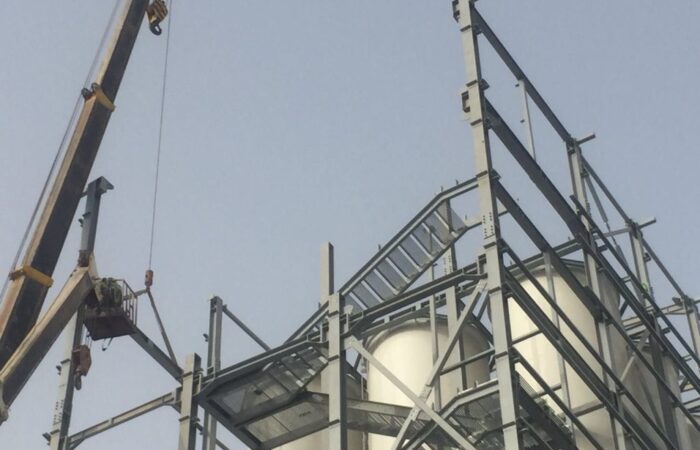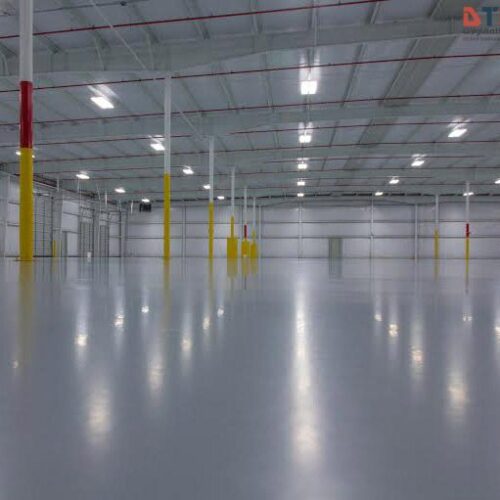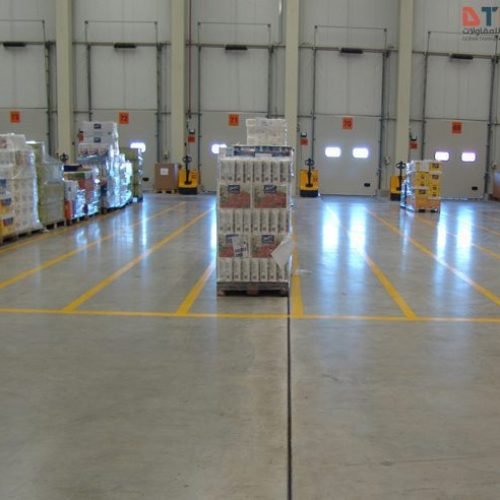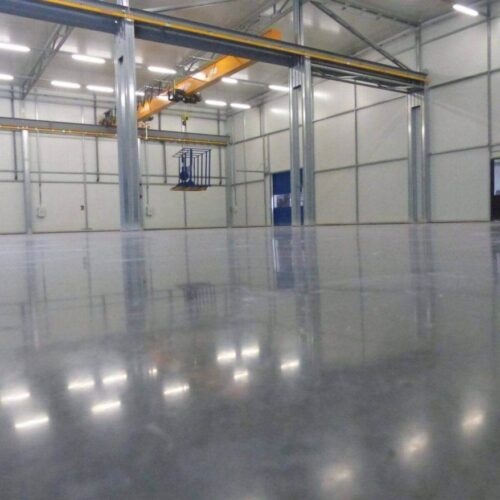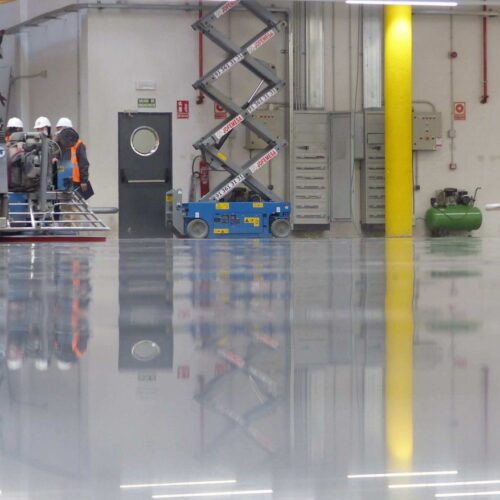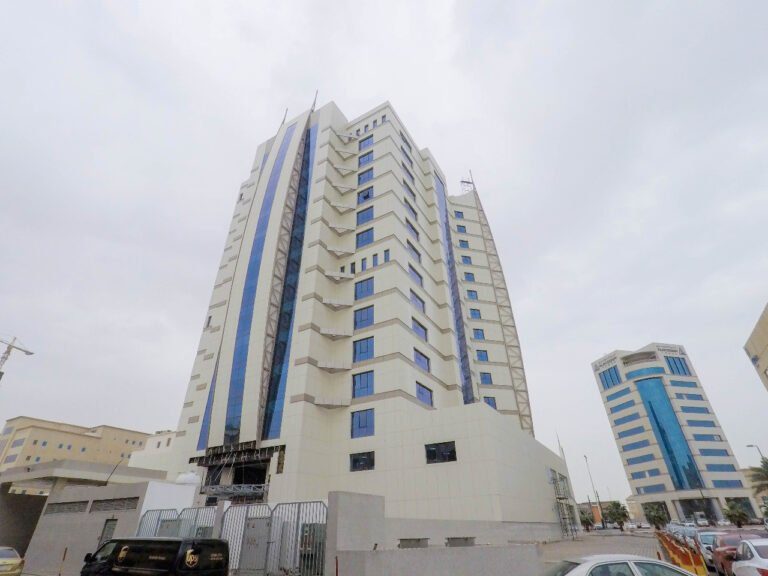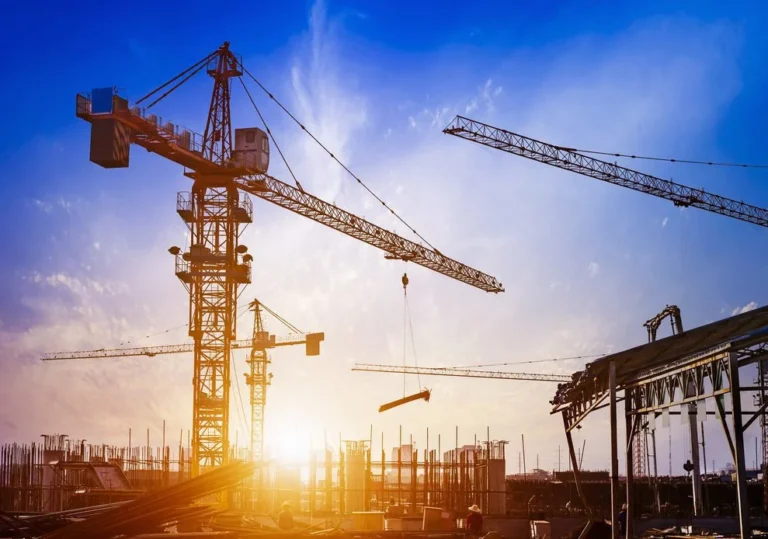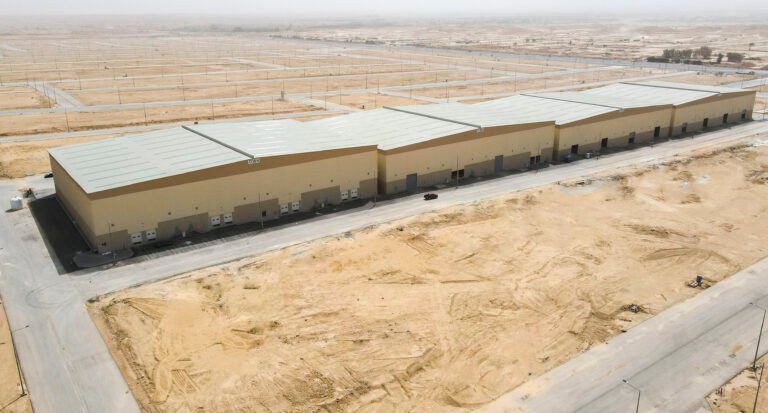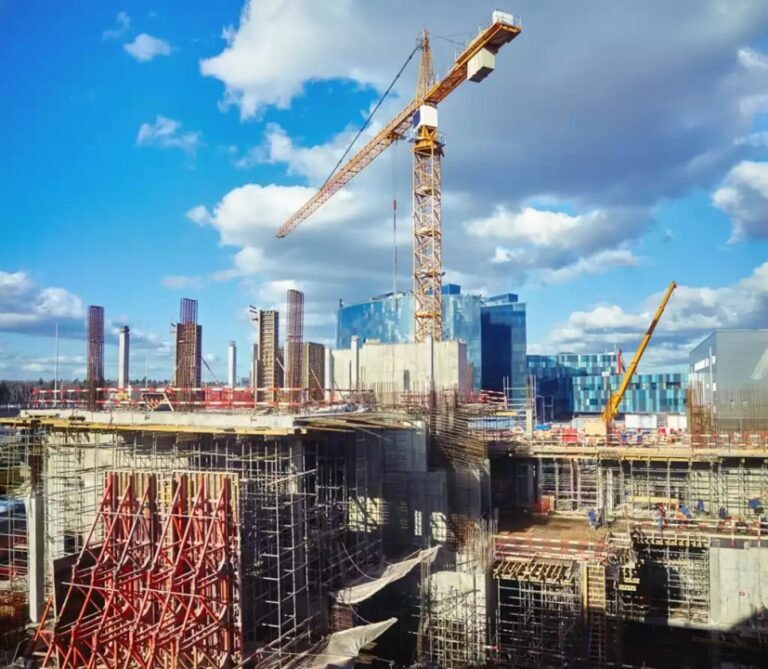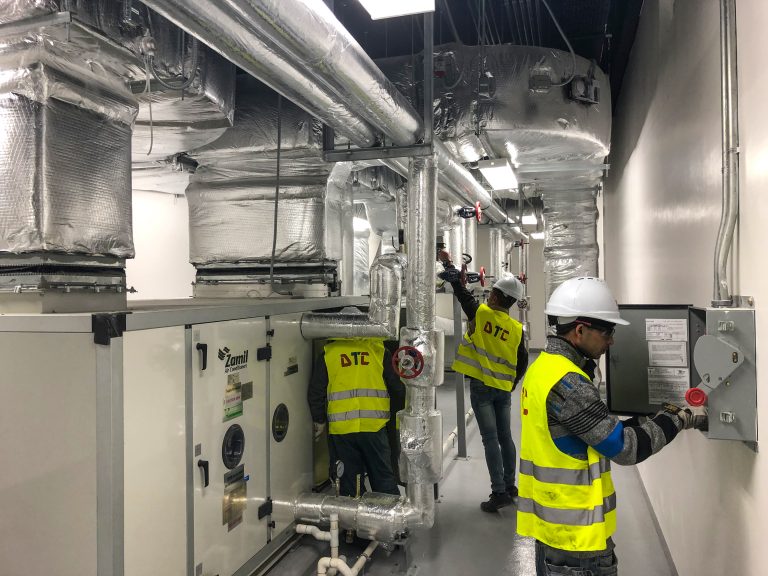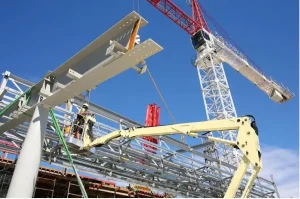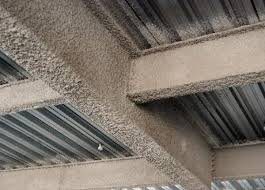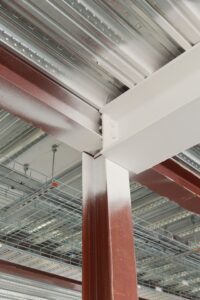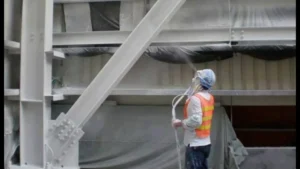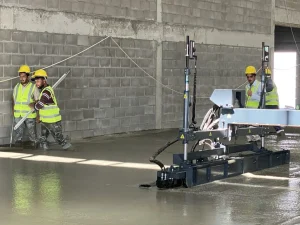“Rising to New Heights: The Business of Steel Erection Contracting in Saudi Arabia”
- Introduction to Steel Erection Contracting in Saudi Arabia
- The Steel Industry in Saudi Arabia: An Overview
- Regulations and Licensing Requirements for Steel Erection Contracting in KSA
- The Business of Estimating Steel Erection Projects in KSA
- Managing Labor and Safety in Steel Erection Contracting in KSA
- Procuring and Managing Materials for Steel Erection Projects in KSA
- Scheduling and Project Management in Steel Erection Contracting in KSA
- Working with Subcontractors and Suppliers in Steel Erection Contracting in KSA
- Building Strong Relationships with Clients in Steel Erection Contracting in KSA
- Best Practices for Cost Control in Steel Erection Contracting in KSA
- Financing and Insurance for Steel Erection Contracting in KSA
- Technology and Innovation in Steel Erection Contracting in KSA
- Case Studies: Success Stories and Lessons Learned in Steel Erection Contracting in KSA
- The Future of Steel Erection Contracting in KSA: Opportunities and Challenges
- Conclusion: Key Takeaways and Final Thoughts on Steel Erection Contracting in KSA
Book Introduction:
Saudi Arabia is a land of opportunity, with a booming construction industry and a growing demand for skilled workers and specialized services. Among the many areas of opportunity in Saudi Arabia, steel erection contracting stands out as a particularly promising field for those with the right expertise, knowledge, and experience.
In this book, we will explore the world of steel erection contracting in Saudi Arabia, providing a comprehensive overview of the industry, the regulations and requirements, and the key strategies and best practices for success. Whether you are a seasoned professional or a newcomer to the field, this book will provide valuable insights and practical advice for building a successful steel erection contracting business in KSA.
Over the course of 15 chapters, we will cover a wide range of topics, from the basics of estimating and project management to the nuances of labor management, material procurement, and client relations. We will examine the challenges and opportunities of working in Saudi Arabia’s unique business environment, and explore the latest trends and innovations in the field of steel erection contracting.
Whether you are looking to start your own business, expand your existing operations, or simply gain a better understanding of the steel erection contracting industry in Saudi Arabia, this book is an essential resource. So let’s get started and rise to new heights together.
Chapter 1: Introduction to Steel Erection Contracting in Saudi Arabia
Steel erection is the process of assembling and erecting structural steel frames for buildings, bridges, and other structures. In Saudi Arabia, steel erection is a key component of the construction industry, as the country continues to develop and expand its infrastructure and commercial real estate sectors.
Steel erection contractors in KSA typically work on projects ranging from small-scale buildings and structures to large industrial complexes and high-rise buildings. These projects may involve the installation of steel beams, columns, trusses, and other structural components, as well as the coordination of labor, materials, and equipment.
The steel erection contracting industry in Saudi Arabia is highly competitive, with a large number of companies vying for contracts and projects. Success in this field requires a combination of technical expertise, business acumen, and an understanding of the unique challenges and opportunities of working in Saudi Arabia’s business environment.
In this chapter, we will provide an overview of the steel erection contracting industry in Saudi Arabia, including the key players, trends, and opportunities. We will also discuss the basics of steel erection, including the tools and equipment used in the process, and the safety considerations involved in this type
of work.
Steel erection contractors in Saudi Arabia typically work on a variety of projects, ranging from small-scale buildings to large-scale industrial complexes and infrastructure projects. These projects may involve the installation of structural steel components such as beams, columns, trusses, and girders, as well as the coordination of labor, materials, and equipment.
The steel erection industry in Saudi Arabia is highly competitive, with a large number of companies vying for contracts and projects. Success in this field requires a combination of technical expertise, business acumen, and an understanding of the unique challenges and opportunities of working in Saudi Arabia’s business environment.
One of the key challenges facing steel erection contractors in Saudi Arabia is the need to comply with local regulations and licensing requirements. The Saudi Arabian General Investment Authority (SAGIA) regulates foreign investment in the country, and companies must obtain the necessary licenses and permits to operate legally.
Another challenge is managing labor and safety. Steel erection projects require skilled workers, and it is important to ensure that workers are properly trained and equipped with the necessary safety gear. Additionally, safety procedures must be followed to prevent accidents and ensure a safe work environment.
Despite these challenges, steel erection contracting in Saudi Arabia presents many opportunities for growth and success. The country’s booming construction industry and growing demand for skilled workers and specialized services provide a fertile ground for businesses looking to expand their operations.
In the following chapters, we will delve deeper into the specific aspects of steel erection contracting in Saudi Arabia, providing practical advice and insights for business owners and professionals in the field. We will explore topics such as regulations and licensing requirements, estimating and project management, labor and safety management, material procurement, client relations, and much more.
By the end of this book, readers will have a thorough understanding of the steel erection contracting industry in Saudi Arabia and the strategies and best practices needed to succeed in this competitive and dynamic field.
Chapter 1: Regulations and Licensing Requirements
In Saudi Arabia, foreign companies seeking to operate in the steel erection industry must comply with various regulations and obtain the necessary licenses and permits to operate legally. The Saudi Arabian General Investment Authority (SAGIA) is the regulatory body responsible for approving foreign investment in the country.
To obtain a license to operate in the steel erection industry in Saudi Arabia, companies must first register with SAGIA and provide a detailed business plan outlining their proposed operations in the country. This plan must include information such as the company’s financial status, proposed staffing levels, and projected revenue streams.
Once the business plan has been approved, companies must then obtain the necessary licenses and permits from various government agencies, including the Ministry of Labor, the Ministry of Commerce and Investment, and the Saudi Arabian General Authority for Zakat and Tax (GAZT). These licenses and permits are necessary to operate legally in the country and failure to obtain them can result in fines or even the revocation of a company’s license to operate.
One of the main challenges facing foreign companies in the steel erection industry in Saudi Arabia is navigating the complex regulatory environment. The laws and regulations governing business operations in the country can be difficult to understand and navigate, particularly for companies without experience working in Saudi Arabia.
To overcome this challenge, companies may choose to work with local partners or consultants who have a deep understanding of the local business environment and regulatory requirements. These partners can provide invaluable guidance and support, helping foreign companies navigate the regulatory landscape and ensuring compliance with all necessary regulations and licensing requirements.
In the next chapter, we will explore the various factors involved in estimating and managing steel erection projects in Saudi Arabia, including material procurement, labor costs, and project management best practices.
Chapter 2: Estimating and Project Management
Effective project management is essential to the success of steel erection contractors in Saudi Arabia. To ensure a project is completed on time, within budget, and to the required quality standards, it is critical to have a well-planned and well-executed project management strategy.
The first step in effective project management is accurate estimating. Estimating involves calculating the costs of labor, materials, and equipment required to complete a project. It is essential to accurately estimate costs to ensure that projects are profitable and that the contractor can deliver on time and within budget.
One key factor to consider when estimating costs in Saudi Arabia is the cost of labor. Labor costs can vary depending on the skill level of the workers required and the prevailing wage rates in the region. It is important to ensure that the labor costs estimated are realistic and competitive, while also ensuring that workers are properly trained and equipped to perform the required tasks safely and effectively.
Another important factor to consider when estimating costs is material procurement. Steel erection contractors in Saudi Arabia must source materials locally or import them from abroad. Procurement costs can vary depending on the quality and quantity of the materials required, as well as the transportation and logistics costs involved in getting the materials to the construction site.
Effective project management also involves developing a detailed project plan and schedule, assigning roles and responsibilities to project team members, and implementing a system for tracking progress and identifying and resolving issues as they arise. It is important to have clear lines of communication between all stakeholders involved in the project, including the client, contractors, and subcontractors, to ensure that everyone is working towards the same goals and objectives.
In the following chapters, we will explore the various aspects of labor and safety management in the steel erection industry in Saudi Arabia, as well as material procurement, client relations, and much more. By the end of this book, readers will have a comprehensive understanding of the key factors involved in steel erection contracting in Saudi Arabia and the strategies and best practices needed to succeed in this dynamic and competitive industry.
Chapter 3: Labor and Safety Management
Labor and safety management are critical components of steel erection contracting in Saudi Arabia. Given the complex and often hazardous nature of steel erection work, it is essential to ensure that workers are properly trained, equipped, and supervised to minimize the risk of accidents and injuries.
Saudi Arabia has strict regulations governing workplace safety, and all steel erection contractors must comply with these regulations to operate legally in the country. Employers are required to provide their workers with adequate training, personal protective equipment (PPE), and other safety measures to minimize the risk of accidents and injuries.
To ensure that workers are properly trained, steel erection contractors in Saudi Arabia must provide their workers with comprehensive safety training programs that cover topics such as hazard identification, safe work practices, and emergency procedures. Employers must also ensure that workers are familiar with the various types of PPE required for their specific job tasks, such as hard hats, safety glasses, gloves, and fall protection equipment.
In addition to providing adequate training and PPE, steel erection contractors in Saudi Arabia must also implement a system for tracking and reporting workplace injuries and accidents. This system is essential for identifying and addressing potential hazards and improving workplace safety over time.
Effective labor management is also essential for the success of steel erection contractors in Saudi Arabia. Labor management involves ensuring that workers are properly trained, equipped, and supervised, and that they have access to the necessary tools and equipment to perform their job tasks safely and effectively.
One key aspect of labor management is ensuring that workers are properly compensated for their work. This involves calculating and paying wages, benefits, and overtime in accordance with local labor laws and regulations.
In the following chapters, we will explore various other aspects of steel erection contracting in Saudi Arabia, including material procurement, client relations, and quality control. By understanding these key factors and implementing effective strategies and best practices, steel erection contractors can succeed in this dynamic and competitive industry.
Chapter 4: Material Procurement
Material procurement is a critical aspect of steel erection contracting in Saudi Arabia. Given the limited availability of certain materials locally, steel erection contractors must rely on both domestic and international suppliers to procure the necessary materials for their projects.
One key factor to consider when procuring materials is the quality of the materials. It is important to ensure that all materials meet the required quality standards and are suitable for the specific application. Steel erection contractors must work closely with their suppliers to ensure that they receive high-quality materials that are free from defects or other issues that could compromise the safety or integrity of the final product.
Another important factor to consider when procuring materials is the cost. Steel erection contractors must carefully balance the cost of materials with the quality and suitability for the project. This involves comparing prices from various suppliers, negotiating favorable terms and conditions, and ensuring that the materials are delivered on time and in the quantities required.
Transportation and logistics are also critical factors to consider when procuring materials. Steel erection contractors must ensure that the materials are transported safely and efficiently from the supplier to the construction site. This involves coordinating with various stakeholders, including freight forwarders, customs brokers, and transportation providers, to ensure that the materials arrive on time and in good condition.
Given the complex nature of material procurement in Saudi Arabia, steel erection contractors must have a thorough understanding of the local market and regulations governing the import and export of materials. This includes understanding the various tariffs, duties, and taxes involved in the procurement process, as well as any regulations related to quality control, labeling, and packaging.
By carefully managing the material procurement process, steel erection contractors can ensure that they have the necessary materials to complete their projects on time and within budget, while also meeting the required quality standards. In the following chapters, we will explore various other aspects of steel erection contracting in Saudi Arabia, including client relations, project management, and safety management.
Chapter 5: Client Relations
Building strong relationships with clients is essential for the success of steel erection contractors in Saudi Arabia. This involves not only delivering high-quality work but also providing excellent customer service and building trust and credibility with clients.
One key factor in building strong client relationships is effective communication. Steel erection contractors must establish clear lines of communication with their clients to ensure that they understand the client’s needs, preferences, and expectations for the project. This involves regular meetings, status updates, and progress reports to keep the client informed and engaged throughout the project lifecycle.
Another important factor in building strong client relationships is delivering high-quality work that meets or exceeds the client’s expectations. This involves working closely with the client to understand their vision for the project, and ensuring that the final product is not only structurally sound but also aesthetically pleasing and functional.
Steel erection contractors must also ensure that they deliver their projects on time and within budget. This involves careful planning and scheduling, as well as efficient use of resources and effective project management.
In addition to delivering high-quality work and excellent customer service, steel erection contractors must also establish themselves as credible and trustworthy partners for their clients. This involves building a reputation for reliability, integrity, and professionalism, and demonstrating a commitment to ethical business practices.
By building strong relationships with their clients, steel erection contractors can not only secure repeat business but also establish themselves as leaders in the industry. In the following chapters, we will explore various other aspects of steel erection contracting in Saudi Arabia, including project management, safety management, and quality control.
Chapter 6: Project Management
Effective project management is critical to the success of steel erection contractors in Saudi Arabia. This involves planning, organizing, and executing projects to ensure that they are completed on time, within budget, and to the required quality standards.
One key factor in effective project management is establishing clear project objectives and goals. Steel erection contractors must work closely with their clients to understand the project requirements and develop a comprehensive project plan that outlines the key milestones, deliverables, and timelines for the project.
Effective project management also requires effective resource management. This involves managing the allocation of resources such as labor, equipment, and materials to ensure that they are used efficiently and effectively throughout the project lifecycle. Steel erection contractors must also be able to adapt to changes in resource availability or project requirements to ensure that the project stays on track.
Another important factor in effective project management is risk management. Steel erection contractors must identify and manage potential risks throughout the project lifecycle, including risks related to safety, quality, schedule, and budget. This involves developing contingency plans and taking proactive measures to mitigate risks as they arise.
In addition to effective project planning and resource management, steel erection contractors must also have strong leadership skills to effectively manage their teams and ensure that they are working towards project objectives. This involves setting clear expectations, providing guidance and support to team members, and fostering a positive work environment that encourages collaboration and innovation.
By effectively managing their projects, steel erection contractors can ensure that they deliver high-quality work on time and within budget, while also building strong relationships with their clients. In the following chapters, we will explore various other aspects of steel erection contracting in Saudi Arabia, including safety management, quality control, and procurement.

